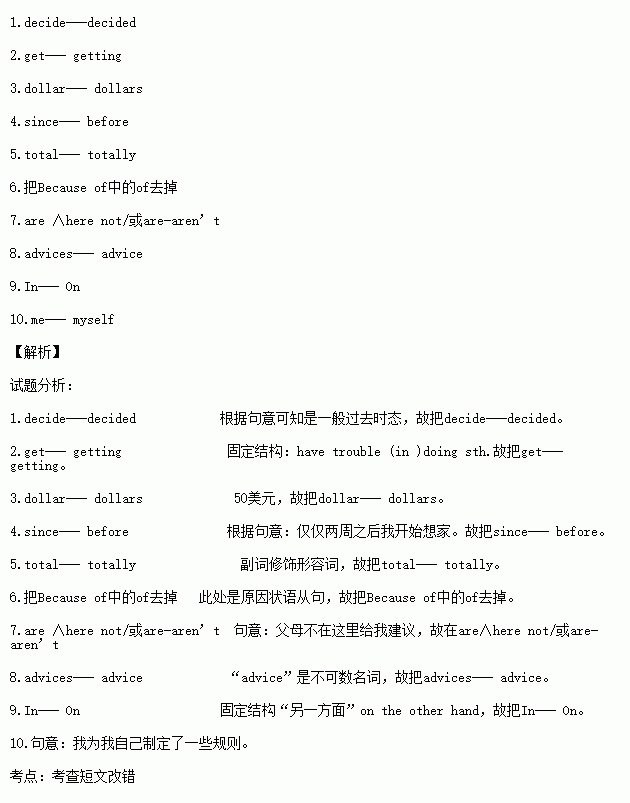题目内容
假定英语课上老师要求同桌之间交换修改作文,请你修改你同桌写的以下作文。文中共有10处错误,每句中最多有两处。错误涉及一个单词的增加、删除或修改。
增加:在缺词处加一个漏词符号(^),并在此符号下面写出该加的词。
删除:把多余的词用斜线(\)划掉。
修改:在错的词下划一横线,并在该词下面写出修改后的词。
注意:1.每处错误及其修改均仅限一词;
2.只允许修改10处,多者(从第11处起)不计分。
The first time I decide to leave home was when I was upon graduation from high school.I was having trouble get along with my parents.I had about fifty dollar in my pockets, and I thought about leaving home.It was only two weeks since I started to feel homesick.Living on my own is a total different experience for three main reasons: being more responsible, more decisive and more creative.Because of I'm on my own, I get to deal with my duties without being told to.I have to be more careful because my parents are here to give me their advices.In the other hand,I can make my own future plan.I have made rules for me to follow.
 第1卷单元月考期中期末系列答案
第1卷单元月考期中期末系列答案
